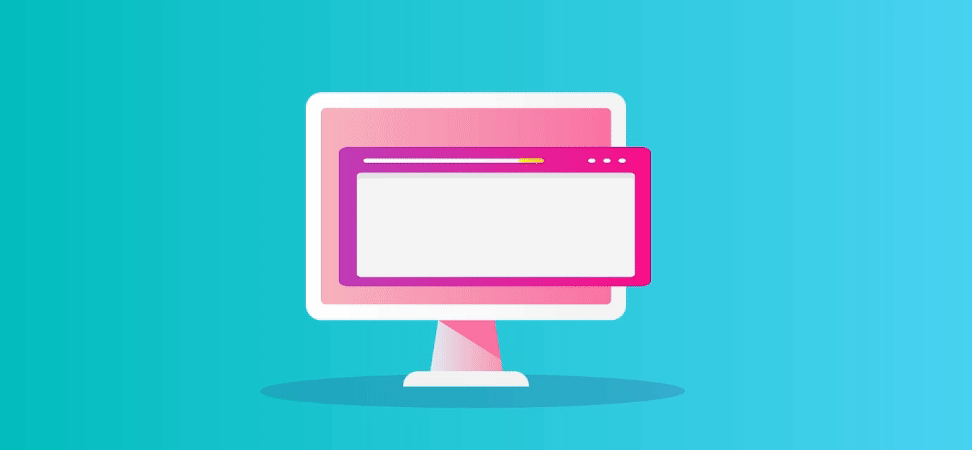Frequently Asked Questions
Why is web design important?
The importance of web design lies in its ability to create a professional online presence that attracts and engages potential customers. A well-designed website enhances user experience, improves SEO, and ultimately drives business growth, particularly in the plumbing, HVAC, and electrical sectors.
How does web design work?
Web design works by combining aesthetics and functionality to create websites that are visually appealing and user-friendly. It involves planning, designing, and coding elements like layout, graphics, and content, tailored to engage users and achieve business goals.
Are web designers in demand?
The demand for web designers is high, driven by the increasing need for businesses, especially in the plumbing, HVAC, and electrical sectors, to establish a strong online presence and effectively engage their customers.
Does web design pay well?
Web design can be a lucrative career. Professionals in the field often earn competitive salaries, especially when specializing in high-demand industries like plumbing, HVAC, and electrical services, due to the growing need for a strong online presence.
Is web design worth it?
Web design is indeed worth it, as it significantly enhances your business's online presence, attracts potential customers, and improves user engagement, especially for specialized industries like plumbing, HVAC, and electrical services.
Why web design matters?
Web design matters because it significantly impacts user experience and online visibility. A well-designed website enhances customer trust, engagement, and conversion rates, making it essential for businesses, especially in the plumbing, HVAC, and electrical sectors, to succeed online.
Is web design in demand?
The demand for web design is significant and continues to grow as businesses increasingly recognize the importance of a strong online presence. Effective web design is crucial in attracting and engaging customers across various industries.
Why is website design important?
Website design is important because it significantly impacts user experience, credibility, and online presence. A well-designed website attracts visitors, improves engagement, and ultimately drives conversions, particularly for plumbing, HVAC, and electrical businesses seeking to expand their customer base.
Is web design worth learning?
Web design is indeed worth learning as it equips you with vital skills to create engaging websites, improve user experiences, and enhance online visibility, particularly valuable for businesses like plumbing, HVAC, and electrical services seeking to attract more customers.
Why learn web design?
Learning web design is essential for creating visually appealing and user-friendly websites that effectively engage customers. It allows you to enhance your business's online presence, attract more clients, and stay competitive in a digital-first marketplace.
Why web design is a good career?
Web design is a rewarding career due to its blend of creativity and technology, offering opportunities for growth, flexibility, and high demand across various industries, allowing professionals to contribute meaningfully to businesses' online success.
How does web design impact user experience?
Web design significantly impacts user experience by determining how easily visitors can navigate, access information, and interact with a site. A well-designed website fosters engagement, reduces bounce rates, and enhances customer satisfaction, ultimately driving conversions.
What skills are essential for web designers?
The essential skills for web designers include a strong understanding of design principles, proficiency in HTML, CSS, and JavaScript, as well as expertise in UX/UI design. Additionally, knowledge of responsive design and SEO optimization is crucial for creating effective websites.
How to choose a web designer?
Choosing a web designer involves evaluating their portfolio, expertise in your industry, communication skills, and understanding of SEO and digital marketing, especially if you operate in plumbing, HVAC, or electrical sectors.
What are common web design trends?
Common web design trends include minimalistic layouts, mobile responsiveness, bold typography, and immersive visuals. Incorporating these elements helps create engaging, user-friendly websites that enhance online presence and attract more customers.
How does web design affect SEO?
Web design significantly influences SEO by enhancing user experience, improving site speed, and ensuring mobile compatibility. These factors contribute to higher search engine rankings and increased visibility, ultimately attracting more potential customers.
What tools do web designers use?
Web designers use a variety of tools to create visually appealing and functional websites. Common tools include design software like Adobe XD and Figma, coding environments such as Visual Studio Code, and content management systems like WordPress for easier site management.
How important is mobile-friendly design?
Mobile-friendly design is crucial for ensuring that websites function seamlessly on smartphones and tablets. With the majority of users accessing the internet via mobile devices, a responsive design enhances user experience, improves search engine rankings, and ultimately drives customer engagement.
What industries benefit most from web design?
The industries that benefit most from web design include plumbing, HVAC, and electrical services, as a strong online presence helps them attract more customers and effectively showcase their services in a competitive market.
How can web design improve conversion rates?
Effective web design enhances conversion rates by creating a user-friendly experience, optimizing load times, and utilizing persuasive calls-to-action. A well-structured website builds trust and encourages visitors to engage, ultimately leading to increased customer inquiries and sales.
What are the costs of web design?
The costs of web design vary based on factors such as complexity, features required, and the specific needs of your plumbing, HVAC, or electrical business. On average, expect to invest between $2,500 and $10,000 for a professional, optimized website.
How to evaluate a web designers portfolio?
Evaluating a web designer's portfolio involves reviewing their range of projects, assessing design quality, usability, and functionality, as well as confirming their experience with specific industries like plumbing, HVAC, and electrical services.
What role does color play in web design?
The role of color in web design is crucial as it influences user emotions, enhances brand identity, and guides navigation. Effective color usage can improve user engagement and make websites more visually appealing, ultimately attracting and retaining customers.
How does user feedback influence web design?
User feedback significantly influences web design by providing valuable insights into user preferences, behaviors, and pain points. This information allows designers to create more intuitive, user-centric websites that enhance engagement and ultimately drive customer satisfaction.
What is responsive web design?
Responsive web design is an approach that ensures websites adapt seamlessly to various screen sizes and devices. This design technique enhances user experience, making it essential for businesses to effectively engage customers online.
How to create a successful web layout?
Creating a successful web layout involves prioritizing user experience through intuitive navigation, clear call-to-action buttons, and responsive design. Focus on a visually appealing aesthetic that aligns with your brand identity while ensuring content is easily accessible and engaging for visitors.
What is the future of web design?
The future of web design involves a strong focus on user experience, accessibility, and the integration of advanced technologies like AI and responsive design, ensuring that websites are not just visually appealing but also functional and user-friendly across all devices.
How does branding relate to web design?
Branding is integral to web design as it establishes a business's identity and visual presence online. A well-designed website reflects brand values and engages customers, ensuring consistency across platforms while enhancing recognition and trust in the plumbing, HVAC, and electrical sectors.
What are the most common web design mistakes?
The most common web design mistakes include cluttered layouts, poor navigation, lack of mobile responsiveness, and ignoring SEO best practices. These issues can hinder user experience and negatively impact a business’s online visibility and customer engagement.
How to test web design effectiveness?
Testing web design effectiveness involves evaluating performance metrics like conversion rates, user engagement, and bounce rates through analytics tools. Additionally, gathering user feedback and conducting A/B testing can provide insights into usability and design impact on customer behavior.









